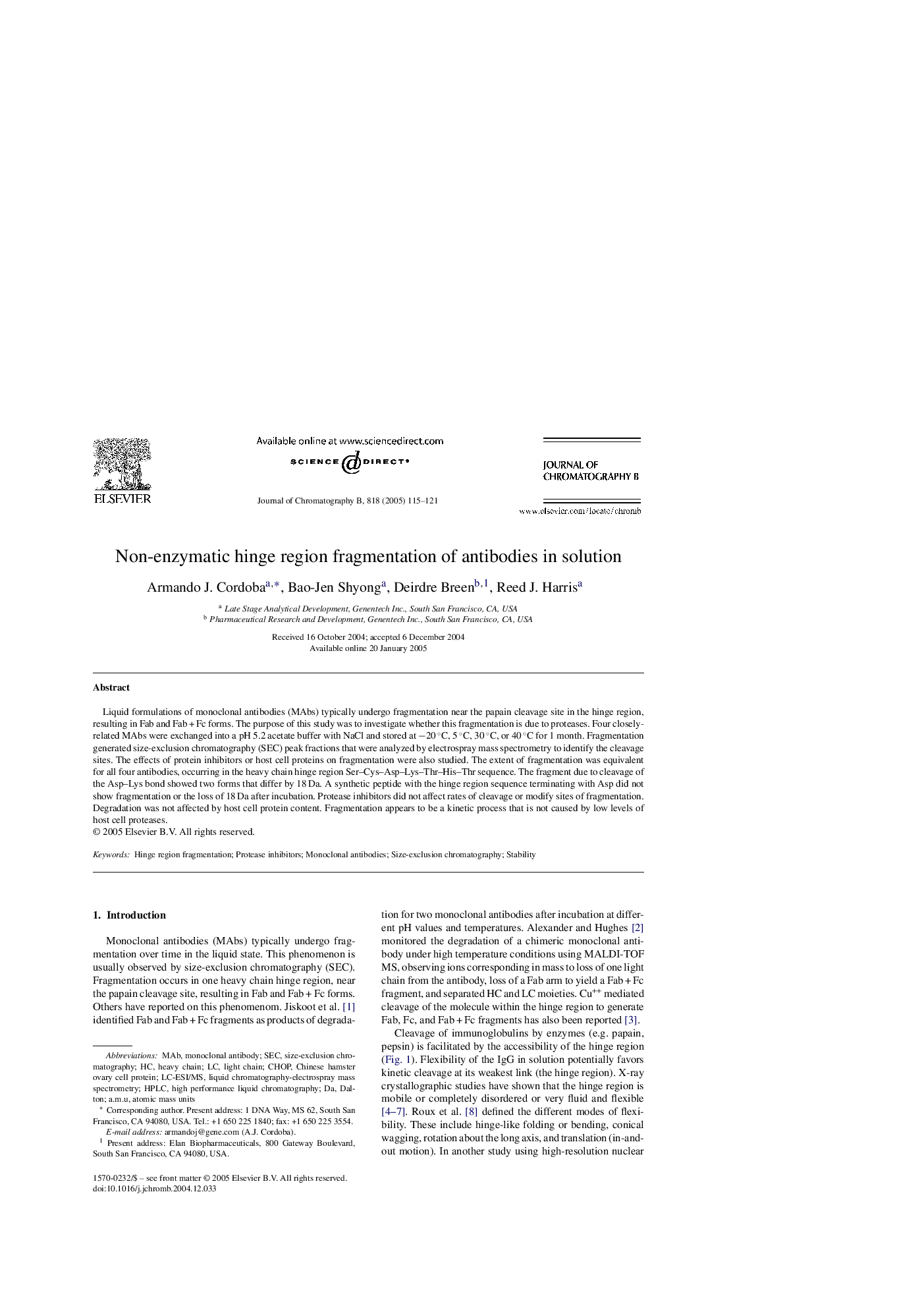| Article ID | Journal | Published Year | Pages | File Type |
|---|---|---|---|---|
| 10551179 | Journal of Chromatography B | 2005 | 7 Pages |
Abstract
Liquid formulations of monoclonal antibodies (MAbs) typically undergo fragmentation near the papain cleavage site in the hinge region, resulting in Fab and Fab + Fc forms. The purpose of this study was to investigate whether this fragmentation is due to proteases. Four closely-related MAbs were exchanged into a pH 5.2 acetate buffer with NaCl and stored at â20 °C, 5 °C, 30 °C, or 40 °C for 1 month. Fragmentation generated size-exclusion chromatography (SEC) peak fractions that were analyzed by electrospray mass spectrometry to identify the cleavage sites. The effects of protein inhibitors or host cell proteins on fragmentation were also studied. The extent of fragmentation was equivalent for all four antibodies, occurring in the heavy chain hinge region Ser-Cys-Asp-Lys-Thr-His-Thr sequence. The fragment due to cleavage of the Asp-Lys bond showed two forms that differ by 18 Da. A synthetic peptide with the hinge region sequence terminating with Asp did not show fragmentation or the loss of 18 Da after incubation. Protease inhibitors did not affect rates of cleavage or modify sites of fragmentation. Degradation was not affected by host cell protein content. Fragmentation appears to be a kinetic process that is not caused by low levels of host cell proteases.
Keywords
Related Topics
Physical Sciences and Engineering
Chemistry
Analytical Chemistry
Authors
Armando J. Cordoba, Bao-Jen Shyong, Deirdre Breen, Reed J. Harris,
